Children don’t clean up after themselves - what to do and how not to go crazy?
Content:
A messy children's room is an eternal topic on parenting forums. If a child does not clean up after himself, chaos reigns in the house. How can I change this? There is one sure way. We need to understand child psychology and come to an agreement.
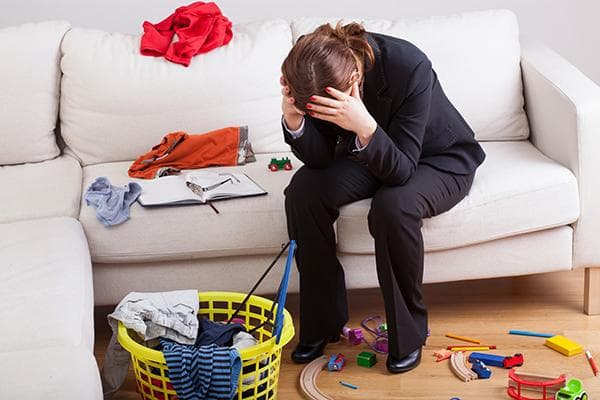
Lifelong cleaning
Often parents protect their children and do not involve them in cleaning until a certain age. Like, it’s still early, he’ll have time to work hard. But habits and behavior in the home are established from childhood. It is correct to teach your child to maintain order and cleanliness gradually. If one day you give your teenager a list of chores, it will come as a shock to him. He's not used to doing this. "For what? Why me? Why today?" It is quite logical that he will be bursting with questions, indignation and the desire to return everything to normal.
The earlier the better
For some reason, many parents are proud that their child knows how to use a tablet from an early age. But if he was able to figure out such a complex device, why not master a duster and collecting toys in a basket?
- At 3–4 years the child can clean up the toys that he has scattered.
- At 5–6 years old children put away toys, wipe off dust and water flowers.
- At 7–8 years old The child is able to maintain order in the closet, in the desk, wash the plate after himself, and help set the table.
- At 9–10 years old I can handle the task of vacuuming my room, preparing sandwiches for all family members, and washing things in the washing machine.
- From 11–12 years old Children share household responsibilities with their parents in equal shares.
What's the point of this?
Children often do not understand why they need to clean. Most of them believe that this is the whim of their parents. This is especially evident in adolescents. They feel great in disorder and chaos and when asked to clean up they answer: “I’m fine as is. You need it, you clean it up.”
Your task is to explain the meaning of cleaning:
- Cleanliness is necessary for health. Agree, no one likes to get sick. And dirt and dust are microbes’ best friends. When their concentration is high, acute respiratory viral infections, allergies, and skin diseases often occur.
- Order helps you think better. The less clutter and clutter you have in your home, the easier it is to concentrate on your activities, plans and goals. A clean home promotes success.
- It's nice. Sitting on a clean sofa, at a tidy table, lying in a fresh bed, walking on a freshly washed floor is a pleasure for every person. A clean room gives peace and tranquility. In a dirty room, on the contrary, everything is annoying.
- Maintaining order is a sign of independence. An adult must be able to take care of himself. This is a certain responsibility that must be carried through life with dignity.
Motivation
Cleaning because “that’s how it’s supposed to be done” is always boring. Even an adult periodically has to motivate himself to do this or that work. The same thing happens with children. The only difference is that it is more difficult for them to motivate themselves to action. Help them.
Fun game
All life is a game. This is what children think up to a certain age. There are fun games for them and not so much fun ones.What games do you think cleaning belongs to? That's right, to the boring ones. But if you use a creative approach, children's opinions will change:
- Sorting by color. Ask your child to collect the red toys first, then the yellow and blue ones. Or choose from a bunch of cars, dolls, and animals one by one.
- Police officer. Play as a policeman who needs to catch fugitive criminals - a bear, a helicopter, a ball. The more offenders he catches and puts in place, the higher he is promoted (give out a badge with stars).
- Competitions. If you have 2 or more children, do the cleaning at speed. Divide the work in half. Whoever does it faster will receive a prize. For example, your favorite cake.
Promotions
Praise is also pleasant for a kitten. The child’s work should be celebrated, even if he did something not quite right. It is important for him to feel that he has achieved at least a small success. Success inspires you and makes you try even harder. Appreciate your child's contribution and reward him with praise and pleasant surprises.
But if you reward work with a gift, avoid the wording “take it away, and then you will receive...” You want to please the child because you feel good about the work done. Rewards should not be perceived as payment. Don't use them too often. It is better to praise verbally.
Technical points
Before you assign your child to clean up after themselves, you need to first make sure that they know how to do it. Where should you put things? In what direction should I sweep the floor? How does the equipment turn on and work? All the rules and subtleties only seem elementary. At a certain stage, a child may have difficulties, and then it is not surprising that he refuses to clean. For example, he simply will not be able to put toys in a box that is overcrowded.
- First, a personal example. Children repeat everything after adults. You are their first example and living instruction. Show how and what to do. Clean the house together until the child begins to do homework “automatically.”
- Storage system. Every thing should have its place. Organize your storage, throw away what you don’t need, add extra drawers or a chest of drawers. You can label the boxes so that the child does not get confused.
Asking cannot be forced
Where do you put the comma? Do not answer. Often all parents start with requests and end with coercion and even threats. And if at an early age it is still possible to force a child, then the teenager will meet the pressure with resistance. He considers himself a person who is free to manage his things and time independently. With instructions and directions you will not achieve what you want, but will only provoke conflict.
Imagine being forced to clean. Roughly, in the context of “you must.” Even if the child himself is not averse to cleaning up, he will not obey out of spite. A wise approach is needed here:
- House routine. The sooner you introduce it, the better. Agree on what days cleaning will take place. Distribute responsibilities. Stick to the schedule strictly.
- Reminders. They are different. “When will you finally clean up?” – such a reminder is unlikely to prompt action. It’s better to say: “The notebooks on the table are preventing you from working.” Or: “The floor is so dirty that your socks immediately turn black.”
Calmly state the facts. In children up to the age of 18–19, the parts of the brain responsible for organization, attentiveness, and consistency of actions develop. They need help and gentle supervision. Prompt, guide and scold them less.
So, from the age of 3–4 years, a child is able to put away toys after himself. Gradually, his responsibilities include more and more tasks. But control remains with the parents until adulthood. You have the task of reminding, encouraging, explaining why to clean and how to do it correctly. Don't expect everything to change overnight. Cleaning should become a habit. Clean things up several times a week and involve your child in homework. Don't back down, look for compromises, negotiate. As they say, water wears away stones.
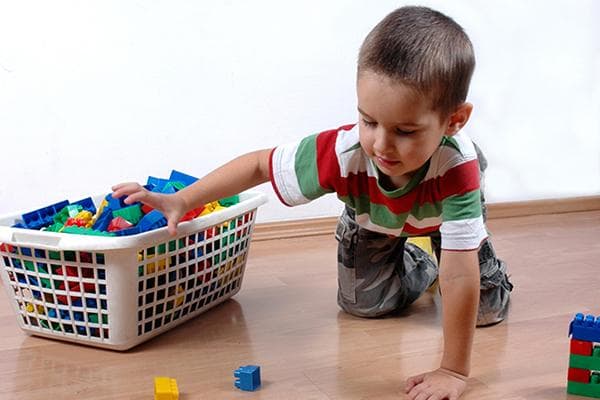
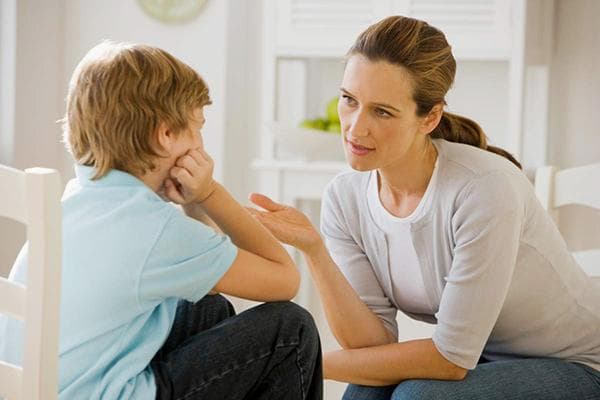
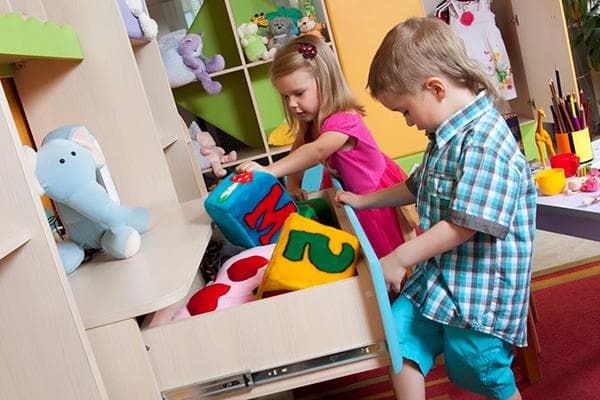
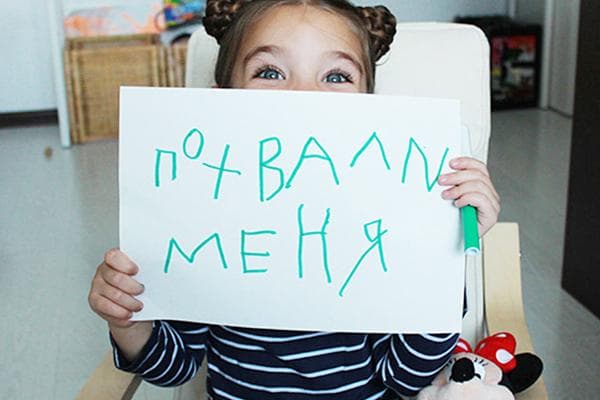
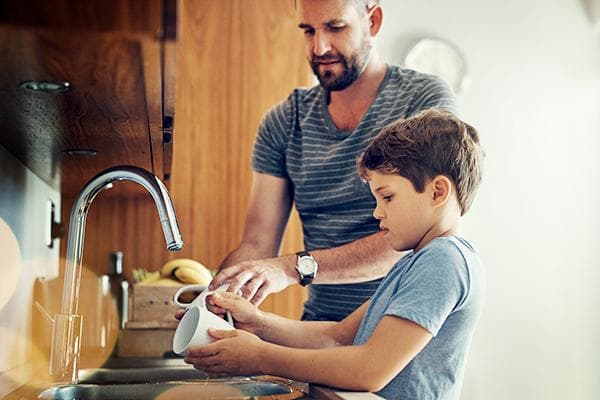
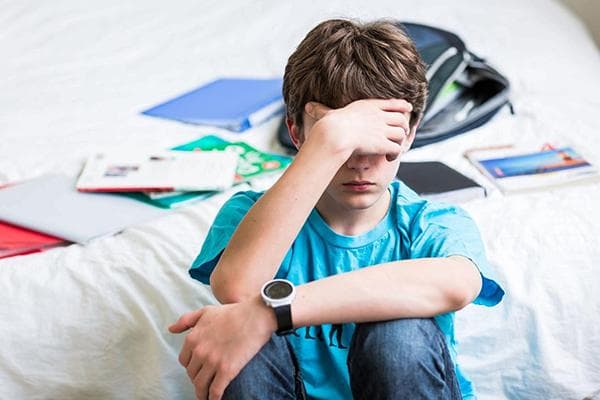
I found an interesting idea on how to not only teach a child to clean up his room, but also make it easier for himself to clean the entire apartment with the absolute involvement of his child. All you have to do is come up with a walk around the apartment for him)))